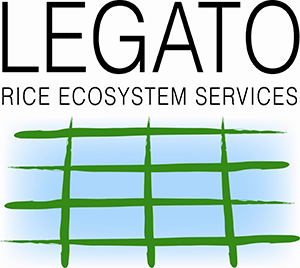Facilitating decisions for sustainable rice production

Continuing global population growth requires an increase in food production. The LEGATO project looks at rice as key staple food for a majority of the human population and the ways in which knowledge about ecosystem services (ES) can help decision makers to improve the sustainability of rice production systems in Southeast Asia.
Facing a projected world population of more than 10 billion by the end of this century, but having 868 million people suffering severe food scarcity in the year 2012, explains why intensive research is conducted to enhance food security.
Rice (Oryza sativa L.) is the major staple food for 2.5 billion people worldwide, whereof 557 million people live in Southeast Asia.
Today, however, yield increases are slowing down, which brings up questions about future food security. Moreover, in many cases ecosystem structures (including biodiversity) and functions have suffered from a food production approach that is only focused on maximising yields.
Approaches that enable a sustainable management of rice cropping systems and the surrounding landscapes are urgently needed. Ecosystem services (ES) offer promising ways to communicate the relevance of biodiversity and functioning ecosystems to decision makers.
In a new study seven rice cultivation areas in Southeast Asia were assessed using the ecosystem service 'matrix' approach as a part of the LEGATO project to demonstrate how quantification, valuation and mapping of ecosystem functions and services are suitable means to facilitate the dialogue about sustainable land use among scientists, policy makers and local stakeholders.
The resulting spatially explicit maps show synthesized and 'easy to digest' information on regional ecosystem service supply capacities, revealing differences between more and less intensively managed cropping areas in Vietnam and the Philippines. Such ES-based information can help providing alternative management options for decision-making in agricultural systems.
Uncertainties of the method and results are discussed and recommendations for future studies are also provided in the article.
Provided by Pensoft Publishers

















